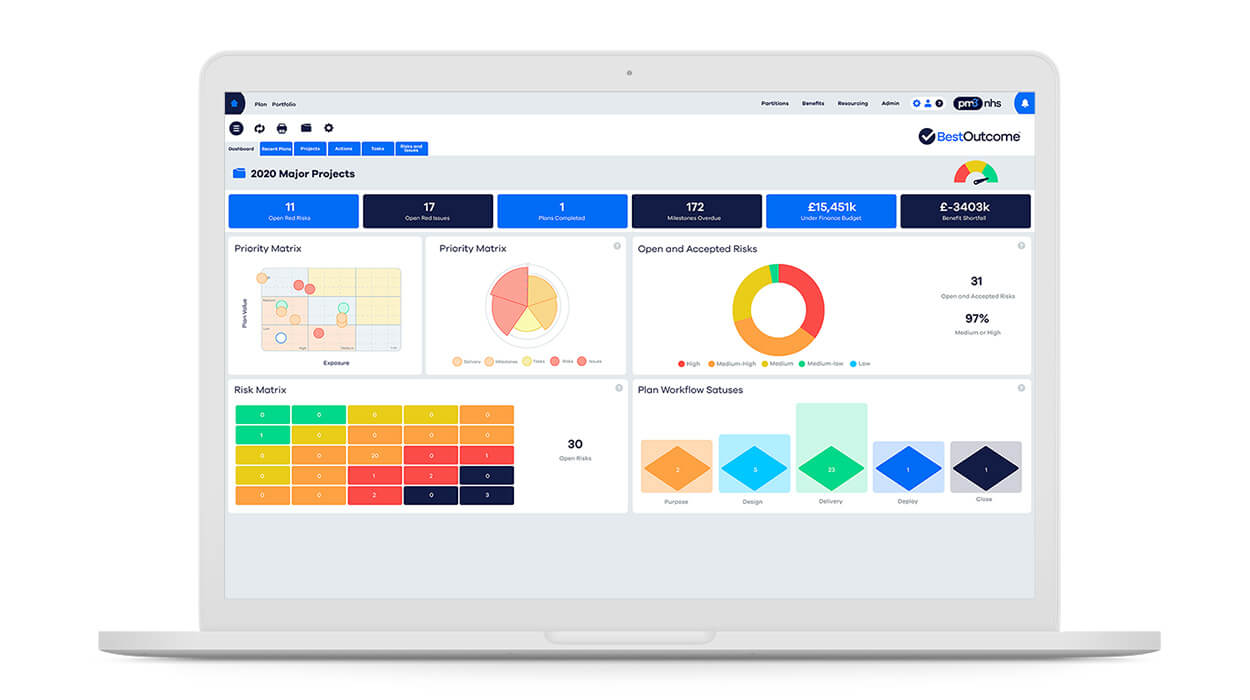Understanding Programme Management vs Project Management is essential for leaders, project managers, and programme managers navigating today’s complex business environment. While both disciplines aim to deliver value, the scope, responsibilities, and skill sets required differ in meaningful ways.
Project managers work on a single project, guiding a project team through specific deliverables, project schedules, and milestones. In contrast, programme managers oversee large programs that may involve coordinating projects across multiple departments, business analysts, and cross functional teams.
By exploring Programme Management vs Project Management in detail, organisations can better align with company goals, improve stakeholder management, and ensure the successful execution of both a project and broader programmes.
This understanding also supports business leaders in assigning tasks effectively, managing stakeholders, and building long-term objectives into their strategy.
When comparing Programme Management vs Project Management, the key differences often come down to scope, objectives, and responsibilities:
Programme management coordinates various projects that are strategically linked to an organisation’s goals. Programme managers typically provide support and guidance to programme team members while keeping sight of high level objectives.
Project management, on the other hand, is more tactical. A project manager focuses on a single project’s outcomes, ensuring specific deliverables are completed within budget and schedule.
Programme managers focus on long term objectives and how multiple projects together serve business operations.
Project managers are measured against short-term success, often defined by project deliverables, quality control, and customer satisfaction.
Programme managers oversee programme team members across multiple workstreams, often working with business analysts and cross functional teams. Their role requires strong communication skills, negotiation skills, and problem solving skills to manage expectations.
Project managers focus on a defined project team, assigning tasks, managing project planning, and resolving conflicts within the boundaries of a single project.
A successful programme manager must build relationships, provide guidance, and focus on the big picture.
A project manager must excel in project management skills, decision making skills, and stakeholder management to ensure the project work is delivered on time.
Recognising these distinctions in Programme Management vs Project Management allows organisations to allocate the right people, project management tools, and methodologies to the right initiatives. It also highlights why collaboration between programme managers and project managers is critical for successful execution.
Programme management is best thought of as the strategic layer that connects multiple related projects. Instead of focusing on a single project’s timeline and deliverables, programme managers typically look at how different projects contribute to the organisation’s long term objectives and high level goals.
In practice, programme management means coordinating projects that share dependencies. A bank, for example, might run a programme to modernise its digital services. Within that programme could be individual projects: upgrading the mobile app, improving fraud detection, and redesigning the online banking portal. Each project has its own manager, but the programme manager oversees the whole initiative, ensuring all the moving parts align with the organisation’s goals.
Programme managers usually hold more senior positions than project managers. They are expected to balance strategic vision with practical execution. This includes guiding programme team members, supporting project managers, and managing stakeholders from different business units. Their work is less about day-to-day scheduling and more about ensuring the successful execution of multiple projects working together.
To succeed, a successful programme manager relies on both technical and soft skills. They need strong communication skills to work across departments, negotiation skills to align priorities, and problem solving skills to address risks that affect more than one project. Beyond that, they must build relationships with stakeholders, provide guidance to project teams, and keep everyone focused on the big picture.
Ultimately, programme management is about delivering benefits that individual projects cannot achieve on their own. It provides the structure and leadership to ensure that when several projects run side by side, they collectively create more value than the sum of their parts.

Learn how soft skills shape effective project and programme leadership.
A programme manager bridges the gap between vision and execution. While project managers guide their teams through specific deliverables, a programme manager ensures those projects all move in the same direction to achieve the organisation’s long term objectives.
In the context of Programme Management vs Project Management, the programme manager is often seen as the “big picture” thinker. Instead of focusing on a single project’s tasks, they coordinate project teams, oversee budgets across multiple initiatives, and align work with company goals. Their focus is on whether the combined outcomes of multiple projects add up to the desired benefits for the business.
Programme managers also carry significant responsibility for people. They support programme team members, but they also work closely with project managers, business analysts, and stakeholders from different parts of the organisation. Success depends on being able to build relationships, manage expectations, and provide guidance across cross functional teams.
Unlike a project manager, who might spend much of their day on project planning and scheduling, programme managers must constantly think about high level objectives and how to keep multiple projects moving together. That means balancing priorities, coordinating projects with different timelines, and stepping in when conflicts or risks arise.
A successful programme manager blends technical expertise with leadership. They need solid knowledge of project management tools and methods, but they also rely heavily on communication skills, negotiation skills, and decision making skills.
Without these, it’s almost impossible to keep teams aligned and ensure successful execution.
Put simply, programme managers are responsible for the overall success of a programme, focusing not only on outputs but also on outcomes that move the organisation’s goals and strategy forward.

Learn how smarter management approaches are helping ICBs tackle complexity and risk.
A project manager is responsible for guiding a single project from start to finish in a structured way. Where programme managers think about the big picture, project managers work closely with their project team to deliver specific deliverables within a defined scope, budget, and schedule.
At its core, the project manager’s role involves planning, guiding, and monitoring tasks so the team can achieve successful execution. They focus on project planning, creating detailed project schedules, and making sure resources are in place to meet deadlines. They also provide support to team members by assigning tasks, resolving conflicts, and maintaining quality control.
In the context of Programme Management vs Project Management, the project manager’s responsibility is much more tactical. They ensure the project work stays aligned to the agreed scope and that outcomes satisfy stakeholders. While programme managers look at long term objectives, project managers are measured by how well they deliver results on time and within budget.
Project managers also need adaptability. Even small projects can face challenges that require problem solving skills, clear communication skills, and strong decision making skills. For larger initiatives, they often collaborate with business analysts or work within cross functional teams to keep everything on track.
The profession itself has grown rapidly, with different project management methodologies — such as Agile, Waterfall, and PRINCE2 — offering frameworks to structure the work. Many professionals also pursue project management certification to strengthen their credentials and prove they have the project management skills needed across industries like IT, finance, marketing, and HR.
In short, the project manager role is about taking one project, defining what success looks like, and guiding a team to achieve it. By doing so, project managers contribute directly to the organisation’s goals, customer satisfaction, and the smooth running of business operations.

Discover proven strategies in Agile vs Waterfall that can help strengthen your project management approach.
Programmes succeed or fail not just because of what the programme manager does, but because of how they do it. The tools they use, the way they lead people, and the skills they bring to the role all shape outcomes. Understanding this approach is key to seeing why programme management is distinct from project management.
To make this approach work, a successful programme manager needs both technical expertise and soft skills:
Consider a programme to roll out new digital tools across an organisation. One project delivers the technology, another focuses on training, and a third ensures compliance with regulations. The programme manager must coordinate projects, manage stakeholders with different priorities, and support programme team members. It’s their mix of technical knowledge and people skills that ensures successful execution.

To fully understand Programme Management vs Project Management, it helps to see how both fit into the wider discipline of portfolio management. If project management is about delivering a single project, and programme management is about coordinating multiple related projects, then portfolio management takes an even broader view.
It involves managing a collection of projects and programmes to ensure the organisation is investing its resources in the right places.
Portfolio management is closely tied to organisation’s goals and long term objectives. It looks at the entire pipeline of work; strategic initiatives, ongoing programmes, and new projects, and evaluates whether they align with company goals, deliver business value, and support day-to-day business operations.
The skills needed at this level are different again. Portfolio managers must balance competing initiatives, manage stakeholders across the organisation, and make difficult choices about where to invest time, money, and people.
They rely on project management tools and data-driven reporting to ensure visibility across various projects and programmes, while also focusing on governance, compliance, and quality control.
For programme managers, understanding this portfolio context is critical. It helps them see how their programmes contribute to the bigger picture and why decisions are sometimes made to shift resources or re-prioritise projects. By staying connected to portfolio goals, programme managers can better support their project teams, manage expectations, and ensure the programme continues to deliver strategic value.

Find out how project portfolio management tools can deliver long-term value.
One of the most important aspects of Programme Management vs Project Management is how each role handles stakeholders. Programme managers must manage stakeholders across departments, ensuring buy-in for large programs that connect to the organisation’s goals. Their responsibilities include building relationships, managing expectations, and providing guidance to programme team members and project managers.
By contrast, project managers focus on stakeholders tied to a single project. They work directly with the project team, business analysts, and customers to make sure specific deliverables meet requirements. Their key responsibilities often include assigning tasks, maintaining quality control, and resolving conflicts within the project team.
Both roles demand strong communication skills, negotiation skills, and problem solving skills. Whether it’s a programme manager overseeing various projects or a project manager delivering one, success depends on managing stakeholders effectively and keeping everyone aligned with the organisation’s goals.
Collaboration between programme managers and project managers is where strategy meets execution. In the context of Programme Management vs Project Management, both roles are essential, but neither can succeed in isolation.
Programme managers keep the big picture in focus, aligning various projects with long term objectives and company goals. They provide guidance, manage stakeholders, and support cross functional teams to ensure programmes deliver lasting value. Project managers, meanwhile, focus on specific deliverables, project schedules, and successful execution within a single project. When they work together, organisations benefit from both strategic alignment and reliable delivery.
The career outlook for both roles is strong. A successful programme manager can progress into senior leadership, portfolio management, or roles focused on business operations and transformation. Project managers often advance by gaining project management certification, mastering new project management methodologies, or moving into programme management as they gain experience.
With demand for these roles continuing to grow, professionals who combine technical expertise with strong soft skills — like communication skills, negotiation skills, and problem solving skills — are well positioned for long-term success.

Discover how project managers can achieve better strategic alignment.
Understanding Programme Management vs Project Management is about recognising how strategy and execution work together.
Programme managers oversee large programs, align projects with organisation’s goals, and provide guidance to programme team members. Project managers focus on single projects, leading their project team to deliver specific deliverables on time and within budget.
Both roles demand technical expertise, strong soft skills, and the ability to work with stakeholders at every level.
PM3 by BestOutcome is an award-winning tool that brings clarity to complexity, making it the ideal choice for both programme and project management. Designed with outcomes in mind, PM3 supports everything from simple projects to large-scale programmes.
Customisation and simplicity
PM3 offers a clean, decluttered interface that adapts to each user’s role, improving usability and adoption. Its flexible configuration means it can be tailored to fit the unique processes of any organisation.
Resource management
PM3 gives leaders a clear view of resource allocation, helping identify underused capacity or potential pinch points. This ensures resources are deployed effectively across projects and programmes.

Reporting and dashboards
With more than 100 out-of-the-box reports and fully customisable dashboards, PM3 equips decision-makers with instant insights for better, faster choices.
Methodology flexibility
Whether your teams work in Waterfall, Agile, or a hybrid model, PM3 supports multiple methodologies to meet the diverse needs of project and programme managers.
Collaboration made easier
Tools like the PM3Team app streamline communication, ensuring updates are synchronised across devices so everyone stays on the same page.
PM3 goes beyond day-to-day management. It ensures alignment with strategic objectives while enabling organisations to deliver immediate project goals and long-term benefits. With PM3, teams achieve the balance between execution and strategy that drives real business success.
What is the difference between Programme Management vs Project Management?
Programme management focuses on coordinating multiple related projects to achieve strategic objectives, while project management is about delivering a single project with specific deliverables, scope, and deadlines.
Which is better: Programme Management vs Project Management?
Neither is “better”—they serve different purposes. Programme management looks at the big picture and long term objectives, while project management ensures the successful execution of individual projects.
Why does Programme Management vs Project Management matter to organisations?
Understanding the difference helps organisations align resources, improve stakeholder management, and balance short-term project goals with long-term strategic benefits.
Do Programme Management vs Project Management require different skills?
Yes. Programme managers typically need strong leadership, communication, and negotiation skills to manage stakeholders across various projects. Project managers, meanwhile, rely on project planning, quality control, and decision making skills to guide their project teams.
Image Sources: Astrid.IQ

Our products help you deliver successful change programmes and projects by always focusing on the overall business outcomes. Find out how our products can help you.
Schedule a demo Discover PM3This article provides you with five top tips on how you can help your team thrive in a remote workin...
Read more >In this article, we will discuss why resource management is so important for project managers....
Read more >See how local authority project management delivers outcomes and value, with a case study showing co...
Read more >